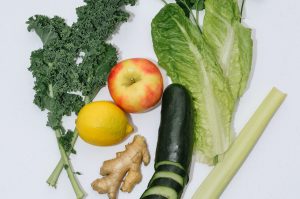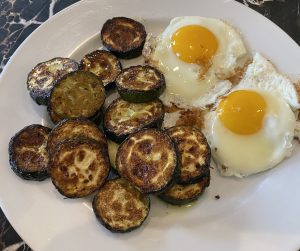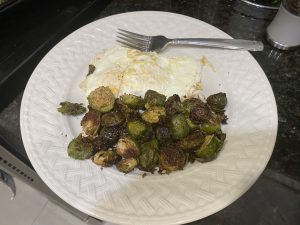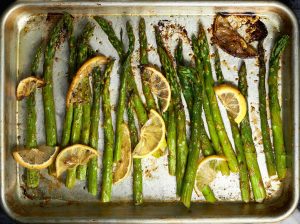Blood Pressure
Chinese Medicine on Fainting, Dizziness

A friend of mine recently expressed having experienced great bouts of dizziness and fainting during the third trimester of her last pregnancy, which was in the dead of summer and was thus not surprising. I felt bad to hear of her struggles, but grateful that it inspired an idea for a new entry, on how Chinese medicine views fainting and dizziness, whether in pregnancy or not, and how we can treat or prevent it.
As with any Chinese medical diagnosis, the specifics get complicated, but we can still relatively easy to simplify into a couple of broad strokes. With any manifestation of dizziness, whether orthostatic, vertigo, passing out, or anything else, we are considering patterns of either blood deficiency, dampness, or a combination of the two, the latter of which obviously being the most difficult to treat. The final one is where your toddler at home forces you to “dance” with her around the house by spinning endlessly, for which there is no cure.
Blood Deficiency: More common in vegans, vegetarians, and pescatarians (most likely descending order), more common in women (especially while pregnant), the elderly, or anyone on long-term medications, which compromise the body’s absorption and capacity to produce blood. There is either a lack of cerebrovascular fluid or its flow and the head becomes faint.
Recommended treatment is herbs and moxibustion (acupuncture not as effective here), red meat or eggs, and earlier bedtimes.
Dampness: More common with obesity, more common in men, and/or people who consume a lot of alcohol, sugar, dairy, or raw foods. The microbiome grows congested with fluid retention, so the pathway by which our cellular energy carries healthy fluids to the brain is obstructed. “The clear yang qi cannot rise,” as we say, and our clarity or stability suffer.
Recommended treatment is minimizing all of the aforementioned foods, herbal medicine for 1-3 weeks to purge fluid retention, and acupuncture, especially along the vertigo line along the scalp located directly above the top of the ears. Note, this point will not be as effective on blood deficiency patterns, who are suffering a pattern of “deficiency,” not “excessive damp,” which responds better to aggressive manual treatment. As for self-care, drink hot ginger tea and black teas until symptoms subside.
Combination Blood Deficiency/Dampness: This is most common in pregnant women and very difficult to treat, because to nourish blood we must generate fluids, but to resolve dampness we must purge it. Not to mention the fact that we must be careful with purging fluid retention in pregnant women, since the fetus is ultimately a form of fluid retention—albeit an adorably magical one.
Dizziness and vertigo are serious conditions, not generally life threatening, although potentially dangerous when leading to the physical risks that accompany fainting. As always, Chinese Medicine can have much to offer in the way of hands-on treatment, internal medicine, and recommended self-care.
When in doubt: red meat, eggs, ginger tea, good rest, and steamed vegetables for the dampness.
The Importance of Bland, Sour, & Bitter Foods
 There are three flavors that are resoundingly unrepresented in the typical, daily, western diet, whose void is arguably part of the cause of our leading all first world nations in major disease. Sour foods, bitter, and bland foods all induce important healing mechanisms in the body that can only be fully understood through Chinese herbal medicine.
There are three flavors that are resoundingly unrepresented in the typical, daily, western diet, whose void is arguably part of the cause of our leading all first world nations in major disease. Sour foods, bitter, and bland foods all induce important healing mechanisms in the body that can only be fully understood through Chinese herbal medicine.
Sour foods have an astringent effect, which makes it very curious why so many Americans drink lemon water or tea when they have a cold or virus, which we want to do anything but astringe. From our perspective foods like lemon, pickles, (apple cider) vinegar, and sauerkraut might be great for improving immune function to prevent contracting colds, but once we are sick, acrid foods such as cinnamon, ginger, and garlic are more advisable.
Sour foods help to conserve (by astringing) the body’s cellular energy and healthy fluids. If we are completely burnt out, or experiencing symptoms such as muscle cramps, or getting a second wind late at night that prevents a healthy bedtime, these might all be requests from our body for more astringing of resources. Personally, I enjoy lemon water, or sprinkling it on kale, broccoli, and/or asparagus. Tomatoes are great this time of year and sauerkraut is especially balancing with spicy foods. Since the spice will naturally bring fluids up and out, we can use the kraut to counteract this effect and keep nutrients inside. Of course, sauerkraut is generally taken raw, so it is important to eat in conjunction with cooked foods or hot tea to fully digest.
The bitter flavor must be hands down the most unpopular in America, and the reason I figure it to be healthy is because my 2-year-old hates it more than anything—while obviously preferring sweet to anything. In Chinese medicine the bitter flavor clears heat (or inflammation) from the body, which is especially important for the next two months of the year. Scutellariae root clears heat from the lungs, Coptis root from the microbiome, and phellodendron from the urogenital microbiome.
These make up the “three yellows,” and if I’ve ever put them in your herbal formula you’ve likely complained to me the following week. Instead, regular consumption of unsweetened green and/or dandelion tea, most leafy greens, and cabbage can help to mature your palette all while reducing the kind of systemic inflammation that tends to rise eventually into the chest or central nervous system later in life. If you must have sweets after dinner, do so with either hot dandelion or barley tea to counter their effect.
The bland flavor is the toughest for me, because like most people with “damp heat” internal body types, I love spices and flavors, and especially love cooking vegetables in a way that is delicious and not so boring. But while there is a time and place for culinary creativity and indulgence, plain steamed vegetables were a staple in the diets of most human beings for centuries prior, which happened to be centuries of much fewer diseases. Sure, people weren’t living as long, but chronic illness in 40-year-olds was much rarer than it is today.
Poria mushroom is one of our most commonly used bland herbs for draining dampness from the gastrointestinal and urogenital microbiomes. Its bland flavor helps to modulate urinary function and reduce pathogenic fluid retention, and by doing so it has the additionally desirable side effect of calming our minds and spirit. How does this work? By reducing the proverbial internal traffic jams of unwanted fluids, our healthy fluids can then more easily circulate up to and from the central nervous system without diversion or congestion. If spicy foods ramp us up, it should be pretty deductive that bland will calm us, and who couldn’t use more calm?
One idea to incorporate this all into a meal is steamed or boiled broccoli (dress with olive oil if you like), sauteed leafy greens with garlic, salt, and pepper, any tofu or animal protein prepared to taste, and a glass of lemon water, and/or sauerkraut on the side; followed by a hot cup of dandelion or barley tea, with honey if you must.
Breakfast Idea: Eastern Nutrition

Patients often ask me what they should eat for breakfast. Most Americans are conditioned to either skip breakfast, have something simple and unhealthy like a bagel or toast, or something “healthy” like yogurt or smoothies. While the latter might check off as such within the context of a scientific laboratory, obviously Eastern Medicines hold that uncooked foods are more difficult to digest, thereby ultimately providing us with less nutrients, in spite of having maybe started with more on the grocery shelf.
While going through Chinese Medical school my own microbiome was a minor disaster, and one of my teachers who was treating me at the time requested I eat sweet potatoes (with my eggs) for breakfast.
“You want me to eat Thanksgiving for breakfast?” I asked. He laughed and asked if I’d ever had eggs with hash browns or french fries. Of course I had, countless times.
He rhetorically asked me what the difference was —if I chopped sweet potatoes in the same way as hash browns, even adding onions to my liking. For years to follow sweet potatoes became my daily breakfast. And many of my health issues gradually improved during that time.
I became perpetually more educated in health and self-care, also about food itself. I learned that sweet potatoes are not in season for the majority of the year, which means during those periods they are, a) not as much what my body needs, and b) likely lacking in their maximum nutrients. From yams it was an easy transition to exploring other vegetables as side dishes with breakfast, which I realized was a good way to get in some daily recommended portions of greens from the start.
For many years now my breakfast has been eggs with a cooked, in-season vegetable, and would struggle to imagine starting the day any other way. In the Winter we eat a variety of root vegetables—whether roasted potatoes, carrots, radishes, or turnips—in Summer it’s more leafy greens. As for the ongoing, raging egg debate, now reignited by many functional medicine docs, all I can say is I’ve eaten eggs every single day for decades. I don’t doubt some peoples’ allergies to them, in which case they should surely avoid until that allergy is rectified. For the rest of us eggs provide invaluable nutrients in a very light, easily metabolized way. In Chinese Medicine they are said to nourish the blood, so much so that the yolk is even an ingredient in the herbal formula, “Huang Lian E Jiao Tang,” which is used to clear inflammatory heat that exists as a result of healthy systemic fluid deficiency. This “blood” benefit is probably why eggs are so highly recommended by many holistic fertility doctors.
EGGS AND “ZUCCH” (as my daughter calls it)
- Pre-heat oven to 375
- Slice squash however you like it, leave all of the slices on the cutting board, and lightly sprinkle them with salt. Let them rest for about 10 minutes (or longer) so that their excess water gets sweated out, then pat them dry.
- Add to pan with olive oil, sprinkle with salt, pepper, and whatever seasonings you like.
- Cook for 15-20 minutes, turning them over once in the middle to roast both sides
- Once almost finished cook your eggs to your liking.
- Drizzle a nice olive oil on top of them once plated
Chinese Medicine Breakfast Ideas

I’m not sure what the time or place was that berthed the maxim, Breakfast is the most important meal, but they were obviously more attuned with human biology than our own. In Chinese Medicine’s circadian clock, 7am-9am is considered the “time of the stomach.” The prior, 5-7am, corresponds to the large intestine, which makes it the ideal and most common time for bowel movements; before that, 3-5am, to the lungs, which is why many people with chronic or acute coughs are disrupted by them in the middle of the night.
While this may all sound like esoteric medical theory, it aligns perfectly with modern biomedical understanding: The reason 7-9am is the time of the stomach is because it is when metabolism is strongest—when our bodies are most sensitive to the insulin hormone, whose job it is to break down glucose from food and transform it into nutrients.
We say “stomach qi.” They say insulin secretion. Same thing. Of course, when people lack a morning appetite or experience a weaker metabolism in the morning we consider this to be pathological, diagnostically informative. Since for most of us 8am is at least 12 hours since our last meal this should not sound far-fetched. Chinese Medicine believes when we do not adequately exercise our microbiome in the morning we weaken it—a similar use it or lose it view as to the muscles, tendons, and ligaments that are ultimately nourished by the gut as well.
Intermittent fasting can have many health benefits when done responsibly, but if one intends to do it intelligently, without potentially robbing Peter to pay Paul in the long term, you would skip or have an early dinner, instead of neglecting science by skipping breakfast. I understand the potential social repercussions of this, for which I recommend compromise: Have dinner or later dinners on social nights, while on quiet nights, if it works for you keep to your fasting window.
For those who claim to not have time for breakfast, I am skeptical. As most of you know, for the past year I’ve been still running my own practice while co-parenting a 14-month old. Recently, as she has rapidly grown in physical mobility and emotional attachment, I’ve been forced to cook with one hand and arm in the morning. I’ve learned to crack and cook eggs all with one (messy) hand, and inadvertently multi-tasked into giving my left bicep a tremendous daily workout. Even on my earlier days in the office we never skip breakfast.
One of my favorite and easiest recipes are as shown above, eggs over easy with ANY roasted vegetables. As long as you can find the five minutes to wash and chop the veggies, you can then throw them on the pan, add salt, pepper, garlic powder, and flaxseed, and cook for 20 minutes, during which time you can get ready for the day (or sit cross-legged on the floor and read children’s books). When they are a few minutes from ready return to the kitchen for your one-minute, one-handed eggs. Once plated I like to add a good quality olive-oil atop the vegetables, a) to give them moisture, b) for olive oil’s health benefits. Viola! Breakfast!
In Chinese Medicine eggs are considered one of the healthiest foods in the world. They even appear in a couple of our herbal formulas that are designed to clear pathological heat from the body by nourishing our healthy fluids and blood. Between my wife, daughter, and I, we consume 3 dozen/week, and I can’t imagine where we’d be if we didn’t. Bon Appetit!
For a FREE INITIAL CONSULTATION on how Chinese Medicine might be able to help you, CLICK HERE.
A Healthy Eastern Medicine Breakfast

There is no school of medicine or nutritional paradigm that does not consider breakfast to be “the most important meal of the day.” The reason for this is of course, science: the fact that morning is when our metabolism is strongest and we are most sensitive to our body’s insulin, whose job it is to break down glucose.
Nevertheless, cultural conditionings invariably conflict with scientific evidence, and breakfast remains generally the most neglected. People either don’t eat it at all, cite coffee as “breakfast,” or turn in C- work in the form of the unhealthy toast or bagel, otherwise “healthy” smoothies and yogurt. From a Chinese medical perspective such breakfasts are mostly inadequate in protein or healthy fat, and worse, they’re cold and sweet. As my mentor, Suzanne Robidoux always says: “A smoothie is not a meal.”
Once in a while, such indulgences are okay. But if taken regularly over time the microbiome becomes colder and weaker, and/or encumbered with gluten and sugars. Once this happens it becomes more difficult to digest heartier foods, so when we try introducing them we feel bloated. Instead of nutrients, our food turns to inflammation, our guts get weaker, and so on. This is the vicious cycle that leads people to have little to no appetite in the morning… which is the metabolic equivalent to not feeling tired at night, or not having a libido during the summer. It is an imbalance (of the liver or gallbladder meridians) that must be corrected.
One way to do so is to fake it until you make it. Eat warmer, higher calorie foods for breakfast, but begin with smaller portions, “smaller dosages,” to allow the body to acclimate. In Chinese medicine there are few foods more revered than (organic) eggs. I have no reservation in advising that it is impossible to eat too many eggs—especially of good quality. Start with one egg, ideally cooked a bit runny and over easy, but any way is beneficial (the yolk is thought to nourish our yin and blood, and is used in certain herbal formulas). You may cook with organic butter, avocado or olive oil, and/or dressed with olive oil at the end. Alternately, one can start with roasted vegetables…
“What??? Roasted vegetables for breakfast???” remarks all every American I know.
Yes. I realize this seems very odd in our country, but keep in mind that our country also leads the first world in cancer, autoimmune, and heart disease. Anyone not willing to step outside of the box of our cultural norms, in my opinion, puts themselves at great risk.
Roasting vegetables in the morning is SO EASY. In the winter I’ll throw a bunch of sweet potatoes (another Chinese herbal superfood) or brussels sprouts in the oven—in summer I’ll err more towards asparagus, if not sauteed leafy greens on the stove. Not only is this fast and simple, but also easy to digest, and checks off much of our daily vegetables requirement. My wife and I eat this with eggs literally every single morning, which in my opinion has undoubtedly nourished for our microbiomes a virtuous cycle of having strong morning appetites and putting them to good use by churning through substantial fatty protein. Or in Chinese medical terms, “the qi is strong” with which to start the day.
We’ll never know the diseases we avoid through good habits. We’ll only know those we endure, and quite often we’re left unsure of what caused them. The conditionings of fast-paced capitalism are obviously what has led us to neglect this spectacular source of strength in the day’s first meal. I highly recommend working towards reversing it. As always, acupuncture and herbal medicine can encourage things in the right direction.
To learn more about how the Chinese medical paradigm of self-care can care for you please don’t hesitate to CONTACT US.


